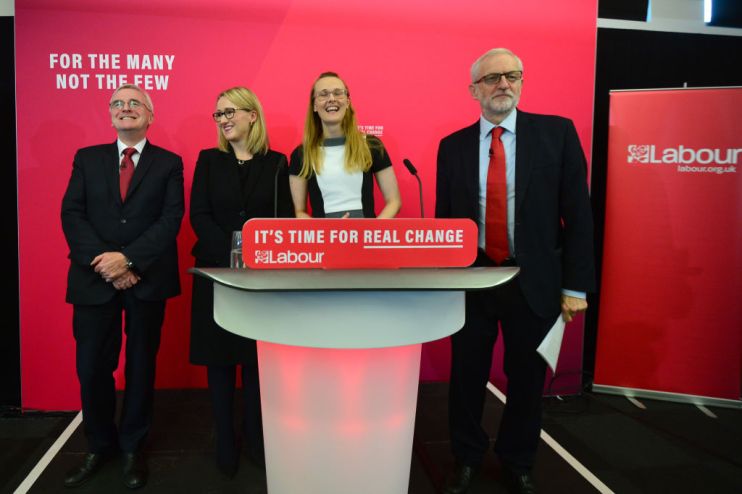It’s not just that Corbyn hates capitalism — he doesn’t even understand it

It’S not exactly news that those at the top of the Labour party dislike capitalism.
But what’s less often pointed out is how little they actually understand about it.
Last week, on my Twitter account, I published something of a demolition of Labour’s claim to save every household £6,700 a year.
After only a cursory look at the figures, I was able to show that every single aspect of the party’s calculations was either partially or wholly inaccurate, ranging from the conjuring up of an “average household” in which two people bought £3,000 rail season tickets (despite how it feels in London, only 11 per cent of us actually commute by train), to citing a paper on the benefits to consumers of renationalisation which did not actually address the topic.
I was complaining to a friend about the sheer gall involved in producing such a document (I’d have used “chutzpah”, but that doesn’t really feel appropriate with the modern Labour party). He asked me what would be worse: John McDonnell’s team having done it deliberately, or them just being that bad with numbers?
And that gave me pause. Because it reminded me of something that happened last year. McDonnell claimed on the Today Programme that “for the first time, shareholders now take a greater share of national income than workers”.
I pointed out that this was, by any conceivable economic metric, utter nonsense. When pushed, McDonnell’s team provided the following justification. According to the latest statistics, the amount of national income going towards wages — “the labour share of GDP” — had dipped below half. This meant that the rest must be going to those evil shareholders.
The McDonnell model of the corporate economy, in other words, consisted purely of wages and profits-slash-dividends. But what was more interesting was that they genuinely didn’t seem to realise why this didn’t make sense — perhaps because so few of them have actually worked in a business, or scrutinised one through the prism of a balance sheet rather than the analytical framework suggested by Das Kapital.
There are many reasons to be sceptical about the Corbynites’ credentials for running a major economy. But it’s not just the details of their proposals — the colossal spending and borrowing, the seizing of assets at below market price, the way in which they would almost certainly make us all poorer — that are cause for concern.
Fundamentally, it’s because their policy platform derives from a worldview in which capitalism and markets are things done to people rather than by them, and ultimately for them.
In Jeremy Corbyn’s gushing foreword to a reprinted edition of Imperialism by J. A. Hobson (a book which, incidentally, contains shocking antisemitic stereotyping about Jewish financiers), the now Labour leader claims that:
“Free market capitalism cannot provide for everyone, or sustain the natural world. Its very imperative is of ever hastening exploitation of all resources including people, and it needs armies and weapons to secure those supplies.”
Actually, there is a fairly well known economic rule by which societies use resources more efficiently as they become more prosperous. Chickens now carry twice as much meat as in the 1970s, and develop with far greater speed. Petrol engines, computers, wind turbines and all the rest deliver far more bang for our collective buck.
It’s not just about efficiency, but convenience: tell kids these days that grapes used to have seeds, and they won’t believe you.
But that isn’t really Corbyn’s main point. His view is that capitalism is something imposed on us, by gunpoint if necessary.
He seems not to realise that free market capitalism is what we all do, every day, when we make decisions as consumers — and that the wealth generated by that process has done the greatest job in human history of “providing for everyone”, even if there is always and inevitably more to do on that front.
If you look at the regimes that Corbyn has praised over the years, they are so very often places which promised fairness but delivered abject misery.
In a column earlier this year, I warned that business needed to speak up in its own defence, in the face of Corbynite denunciation. It was a point made again this weekend in an excellent column by Oliver Shah, who lamented the number of business leaders who were privately terrified of Corbyn but felt unable to say anything publicly.
Yet the irony is that, while a Corbyn government would have profound implications for the City and for the economy generally, many of them would probably be unintended.
Because it’s not just that the Corbynites dislike capitalism. It’s that they simply don’t understand it.
Main image credit: Getty